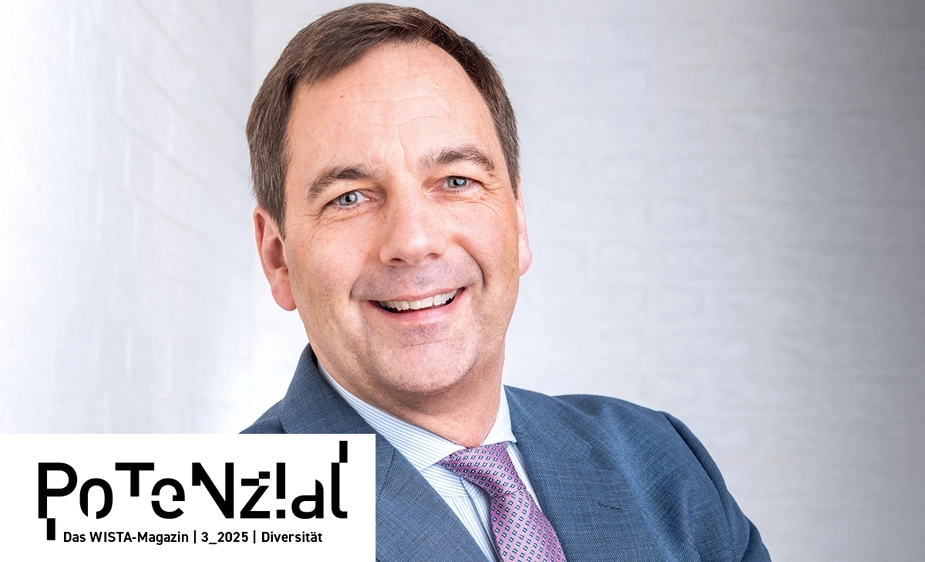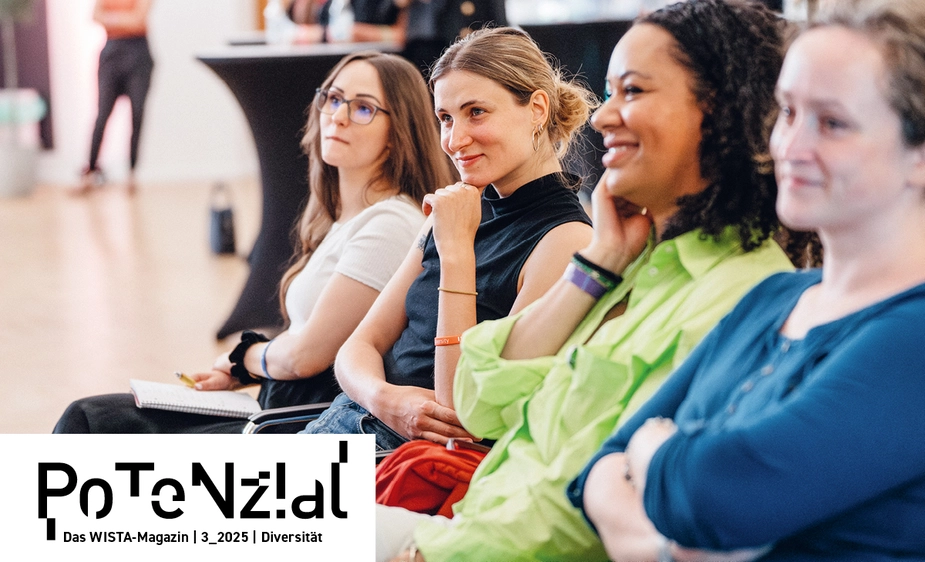»Diversity isn’t an added bonus – it’s our only chance«
A conversation with diversity expert Wolfgang Jockusch about hesitation and fears, inclusive leadership, and why companies can’t afford to ignore diversity
Everyone’s talking about diversity, but what does it actually mean?
Wolfgang Jockusch: First and foremost, diversity is a fact. People are and always have been diverse. Unfortunately, the topic often gets narrowed down to a few aspects, such as gender. But diversity includes so much more: age, background, religion, sexual identity, socio-economic status, disability, culture—in short, everything that makes us unique as human beings. Plus: Diversity doesn’t look the same everywhere you go. Things that are discussed with considerable sensitivity in Germany may be approached quite differently in countries like the US or India. Another key point: Diversity, too, is a social construct. Discrimination doesn’t stem from the trait itself, but from the way society labels it.
You advocate a more relaxed approach to the topic. What’s standing in the way?
Uncertainty. Many people—especially in professional settings—are afraid of saying the wrong thing. They rather stay silent than risk causing offence. But nothing changes without engaging in dialogue. I’ve been working in the field of diversity for nearly 20 years—and I still make mistakes. What matters is how we deal with them. Diversity also means a willingness to learn. We shouldn’t tense up, but muster up the courage to be open.
With your companies, BAMIK and Diversity Webinars, you offer training and webinars. What do you focus on?
We mainly work with businesses. Our approach homes in on the triad of Diversity, Equity, Inclusion. Our programmes range from basic training, to handling unconscious biases, and dealing with legal aspects, such as the General Equal Treatment Act (AGG). We address all relevant areas—age, disability, gender, culture, religion, sexual identity and orientation—and how to prevent discrimination in the workplace.
How international is your work?
We’re active across Germany and Europe—as well as in the United Arab Emirates, India, and the US. A key principle for us: no copy & paste. Diversity issues must be tailored to the context. That’s why we collaborate with local experts to prepare content that’s culturally sensitive and offer training in various languages. Diversity does not begin with the companies—it starts with access to knowledge.
You’re giving masterclasses on Inclusive Leadership at the diversity conferences at Adlershof Technology Park. What can the participants expect?
Having a diverse team is only the beginning. You also need structures that make those differences productive. This includes leaders who listen, integrate, and build bridges.
In a place like Adlershof, with its international research and start-up scene, that’s especially important. The masterclasses focus on how to cultivate an inclusive culture—practical, but with real depth.
Where do you see the biggest challenges in the field of diversity at the moment?
Without a doubt, it’s polarisation. Dialogue is breaking down because we’re no longer listening to each other. Inclusion can’t just focus on minorities—it has to involve everyone, including the majority. Anything else creates rifts. And it doesn’t help if both sides engage in moral grandstanding and finger-pointing. We need genuine, respectful conversations, and a willingness to see diversity as a shared responsibility.
What does that mean for international settings like Adlershof or other innovation hubs (what WISTA calls Zukunftsorte)?
I like to use an example from HR to make this clear. There, we have two critical phases: recruiting and retention. If people already feel unwelcome during the job search because of their background or appearance, they won’t show up in the first place. If they do show up, they will only stay if the culture is right. Inclusion has to be practised—from the language used in the break room to recognition within the team. To achieve this, companies need a clear strategy, openness, and a healthy helping of empathy.
What chances does diversity offer—for companies but also society as a whole?
Let me flip the question: what chances do we have without diversity? The answer is none. Innovation, creativity, entrepreneurship—much of it stems from people with different experiences and perspectives. In an ageing society like ours, diversity isn’t a luxury, but a survival strategy. Those who embrace and practice that will not only attract fresh talent, but they become fit for the future.
Rico Bigelmann for Potenzial
- Diversity Webinars - Your Learning Platform for Diversity, Equity & Inclusion
- BAMIK - Intercultural and Diversity Training for Professionals

